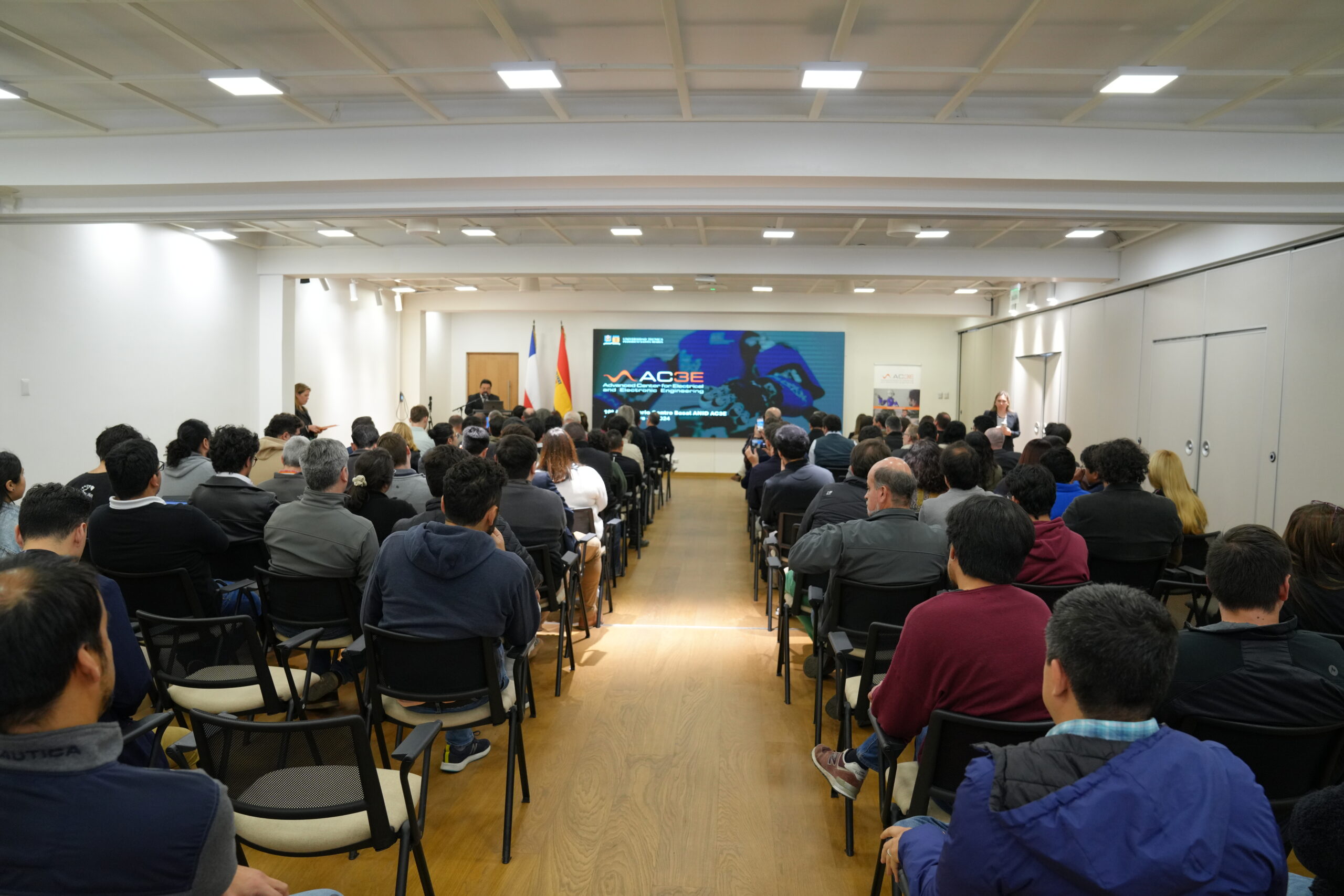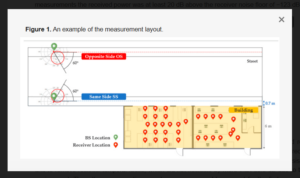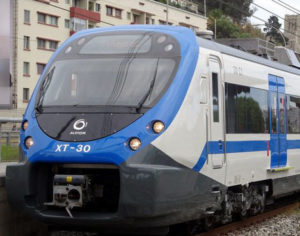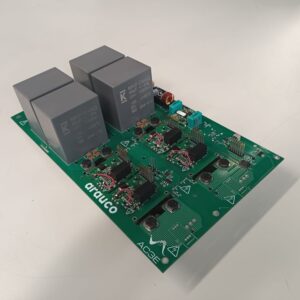On October 15th, the anniversary ceremony “A Decade of Science, Technology and Innovation from Chile” of the Advanced Center for Electrical and Electronic Engineering, AC3E, of the Universidad Técnica Federico Santa María, was held at the university’s facilities in Valparaíso. The event was attended by the Chief of Staff of the Regional Ministerial Secretary of Sciences of the Northern Macrozone, Carolina Quinteros; the Rector of the University, Dr. Juan Yuz; the General Director of Research, Innovation and Entrepreneurship of USM, Dr. Mónica Pacheco and the Director of AC3E, Dr. Héctor Ramírez, among other authorities, academics and representatives of companies and institutions of the V region, with which the Center has worked during these years.
The basal center of the National Research and Development Agency, ANID, has contributed to bringing the work carried out in university laboratories closer to companies, transforming it into technological developments capable of improving their production processes, which is reflected in about 200 projects with different regional, national and international industries.
“For our university it is a pride to have a research center that celebrates 10 years of trajectory, consolidating and expanding a human team capable of facing challenges, articulating lines of research and areas of development that adapt to the needs of the industry. This has allowed a significant contribution to the scientific and technological development of the country, as well as to the training of highly specialized human capital. This Center reflects the commitment to go beyond what is taught in classrooms and laboratories, assuming the responsibility of contributing to national development, in collaboration with students and with the support of the resources granted to us by the State,” highlighted the Rector of USM, Dr. Juan Yuz, who was also director of AC3E during 2015 and 2019.
“As the Regional Ministerial Secretariat of Sciences, Technology, Knowledge and Innovation of the Northern Macrozone, we are pleased to see how initiatives like this Center, celebrate 10 years of life and have been able to form a community in a scientific ecosystem, managing to mitigate the idea that science is only done in laboratories, and transferring it to society and industry, so we hope they can fulfill many more years and achieve their new challenges,” highlighted Carolina Quinteros, Chief of Staff.
For her part, the general director of Research, Innovation and Entrepreneurship of USM, Dr. Mónica Pacheco, highlighted the work, effort and commitment of the research team, professionals and students that make up the Center, who have managed to build a world-class scientific community, consolidating an ecosystem where research, innovation and technology transfer flow naturally. “Basal centers like AC3E are fundamental to enable the value chain between research, development and knowledge transfer, allowing our academic and scientific capabilities to translate into concrete solutions that impact the competitiveness of the Chilean economy and contribute to the well-being of society,” she said.
During the activity, the former director of AC3E, Dr. Matías Zañartu, was in charge of detailing some of the main achievements of the center, among which he highlighted the close relationship with the industry, more than 950 research articles, 530 scientific outreach activities, 4 spin off companies, a thousand students and the growth of 266% of women’s participation in different roles ranging from senior researchers to students.
Finally, the new director Dr. Héctor Ramirez, recognized the work of Dr. Zañartu and shared with the more than 100 attendees what will be the re-application process that will take place these months and the goals defined for the new period. “The results achieved allow us to dream big and continue to be a bridge between academia and industry, a research center of excellence and national benchmark in electrical and electronic engineering, continue generating advanced human capital, promoting gender policies in engineering; inspiring and motivating future generations, through multiple activities with schools and high schools in the region, to build a better future and quality of life from academia,” highlighted Dr. Ramirez.








